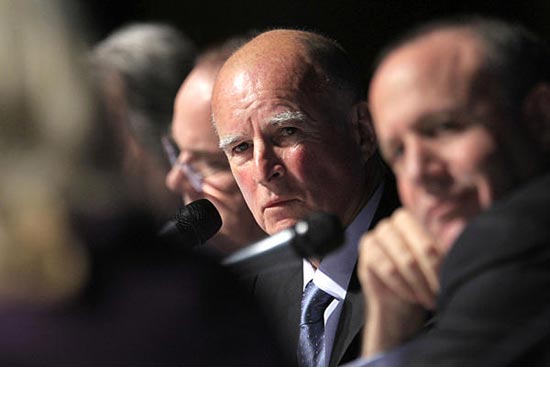Brown’s budget painful but “real”
January 11, 2011
Crunching the numbers in Gov. Jerry Brown’s proposed budget, Los Angeles County officials are bracing for deep cuts in services and potentially many millions of dollars in less visible costs.
An executive summary of the potential impacts shows that a $1.5 billion statewide cut in the CalWorks welfare program could trim the program by $450 million in Los Angeles County, spelling the loss of benefits for some 37,000 families here. That, in turn, could create new demands on the county’s general relief program, leading to additional costs in an already strained county budget.
Meanwhile, the county Department of Health Services stands to lose some $20 million if a proposed $1.7 billion in cuts, including reductions in payments to providers, are made to the state’s Medi-Cal program. Those cuts would pose challenges for the county’s perennially deficit-plagued health department budget and contribute to “some serious problems in our provision of health care here in L.A. County,” Chief Executive Officer William T Fujioka told supervisors on Tuesday.
The executive summary of potential budget impacts also outlined what’s coming the county’s way under “realignment,” in which responsibility for many programs would shift from the state to the local level.
For one thing, the county’s Probation Department would assume responsibility for 30,000 or more “violent and serious” state parolees, including sexual predators, at an additional cost of $185.3 million—excluding the cost of hiring new staff and related expenses, Fujioka said. County jails also would absorb 13,550 convicted felons now in state custody—nonviolent offenders without sex crimes convictions—at a potential cost of more than $450 million. Other passed-along expenses would come in areas ranging from child welfare and foster care ($557 million) to court security ($132.5 million.)
“What is of serious concern…is whether or not we have sufficient funding to maintain the current level of services that will be sent from the state,” Fujioka told supervisors. “If these services come to us without the necessary revenue, it puts a burden on our already… severely challenged programs and services.”
His remarks echoed comments by Supervisors Zev Yaroslavsky and Gloria Molina, whose Op-Ed piece this week in the Los Angeles Times argued for a “financially sustainable” proposal that would allow local governments to help the state through its crisis.
Yaroslavsky was attending a funeral Tuesday morning and did not attend the board meeting. Molina used the occasion to forcefully call on county officials to enter into a true partnership with the state and find constructive ways to achieve the inevitable cuts.
“If you aren’t part of the solution then get the hell out of the way,” Molina said. “Nobody’s going to listen to a bunch of moaners and whiners and we in L.A. County shouldn’t do that.”
“Crying crocodile tears,” she said, “is not going to impress them [in Sacramento].”
The governor’s budget hinges on voter approval of a proposed June ballot initiative that would extend a 1% sales tax and a .5% vehicle license fee for five years in order to fund the programs that would become county responsibilities under realignment. At the end of five years, the state would pick up the funding responsibility, according to the county’s budget impact report.
But Fujioka told supervisors that passage of the ballot initiatives is far from assured. “Extending the taxes and fees is not a given…That is going to be a very difficult request to get through the state Legislature and also through the electorate.”
Supervisor Michael D. Antonovich criticized the governor, arguing that the proposed budget dodged the necessity of reforming state spending patterns.
“There are dollars that are being generated but they’re not being allocated to appropriate areas,” he said. “And then to get rid of their irresponsibilities by shifting it to the cities and counties without any stable source of long term funding makes no sense.”
“I was expecting the governor to be bold in addressing these issues,” Antonovich said, “instead of basically doing what Arnold Schwarzenegger had done.”
But Molina praised the governor for getting the budget out early and for letting the county—along with all Californians—know how much pain is in store as the state seeks to climb out of a profound economic “ditch.”
“The governor has put it squarely in front of us,” Molina said. “Here’s the numbers. Like ‘em or not, they’re real.”
Posted 1/11/11













 405 bridge work causes a stink
405 bridge work causes a stink
